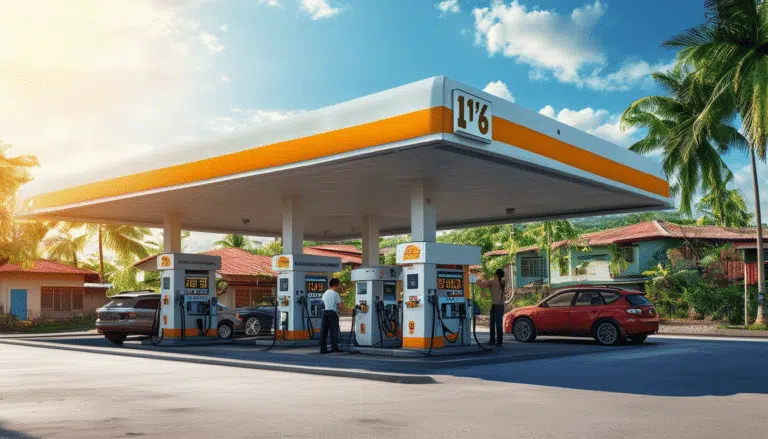Fuel economy: proper maintenance vs. neglect
The fuel economy has become a topic of great relevance in today’s world, where fuel costs continue to rise. A crucial aspect that is often overlooked is the importance of proper maintenance of the vehicle. Proper care not only ensures optimal engine performance but also translates into significant financial savings. In contrast, negligence in maintenance can lead to increased fuel consumption and, therefore, unnecessary expenses. It is essential to understand how these maintenance practices can influence fuel efficiency and the driver’s economy.
Proper maintenance of vehicles has a significant impact on fuel efficiency and the economics of drivers. Neglecting maintenance needs can not only cause an increase in fuel consumption but can also result in costly repairs. Through a proactive approach to preventive maintenance, vehicle performance can be optimized and fuel expenses significantly decreased.
The Impact of Neglect on Fuel Consumption
When a vehicle does not receive proper maintenance, fuel performance is negatively affected. Common problems such as low tire pressure, clogged fuel filters, and a faulty exhaust system can lead to unnecessary gasoline consumption. These oversights can result in increases of up to 30% in fuel expenditure in urban environments, while on highways the increase could be as much as 20%.
Effective Maintenance and Fuel Savings
Preventive maintenance is a key strategy to maximize fuel economy. Regular inspections, such as checking tire pressure and cleaning or replacing filters, can improve vehicle efficiency by up to 10%. These practices ensure that each component is in optimal condition, which not only saves fuel but also prolongs the longevity of the engine.
The Role of Tires in Fuel Economy
Tire management is crucial for fuel efficiency. Properly inflated tires reduce rolling resistance and, therefore, fuel consumption. It is estimated that insufficient pressure can increase fuel expenses by up to 3% compared to well-inflated tires. Monthly tire pressure checks are a basic recommendation that can prevent unnecessary fuel costs.
The Engine’s Functioning and Its Maintenance
The engine is the heart of any vehicle, and its proper maintenance is vital for fuel economy. A clean air filter and an unobstructed fuel filter allow for optimal and efficient airflow and fuel flow, resulting in improved performance. Neglecting these components can lead to excessive gasoline consumption and premature engine wear.
Driver Behavior: A Determining Factor
Driver behavior significantly impacts fuel consumption. Sudden acceleration and abrupt braking not only wear out the vehicle but also increase gasoline expenses. Incorporating smoother driving habits and observing speed limits can contribute to a reduction of up to 20% in fuel consumption. To explore more on this aspect, studies on driver behavior can be consulted.
Fuel Management and Quality
Using quality fuel is essential for optimal performance and significant fuel savings. Fuels with high impurity content can clog the fuel system, resulting in performance issues and increased consumption. Changes in fuel quality can affect efficiency by 5%, making it essential to choose the right type of fuel.
Proactive Maintenance: Strategies for a Sustainable Future
Implementing a routine of proactive maintenance offers multiple benefits. It not only translates into fuel savings but also contributes to the reduction of polluting emissions, benefiting the environment. A comprehensive approach includes planning regular services and changes of consumables according to the intervals recommended by the vehicle manufacturer.
Therefore, regular and proper maintenance is not only a matter of savings but also of environmental and economic responsibility. For more information on common maintenance mistakes that can increase fuel expenditure, a useful resource can be accessed through this link.
Proper maintenance of a vehicle plays a crucial role in fuel efficiency and the reduction of operational costs. When necessary checks and adjustments are carried out regularly, engine performance is optimized, the lifespan of components is extended, and unnecessary wear that could lead to increased fuel consumption is avoided. Elements such as tire pressure, the condition of filters, and the proper functioning of the exhaust system need constant attention to ensure the vehicle operates optimally.
On the other hand, negligence in maintenance can result in a drastic increase in gasoline expenses. A dirty engine, clogged filters, or deflated tires not only affect vehicle performance but also have a negative impact on the environment. In Europe, for instance, it is estimated that idling wastes millions of euros each year. This underscores the need for proactive maintenance to avoid situations that lead to fuel waste.
Moreover, the issue of high fuel consumption is also related to driving behaviors. Aggressive driving, combined with lack of maintenance, can further exacerbate the problem, significantly reducing efficiency in fuel use. It is known that sudden acceleration and excessive braking can greatly diminish fuel savings, particularly in urban environments.
Closing this virtuous circle requires a holistic approach to vehicle maintenance, in which the driver takes responsibility for keeping their vehicle in excellent condition. Adopting proper maintenance habits not only saves money but also contributes to a more sustainable environment. Investing in maintenance is undoubtedly the best strategy to maximize fuel economy in the long run.





